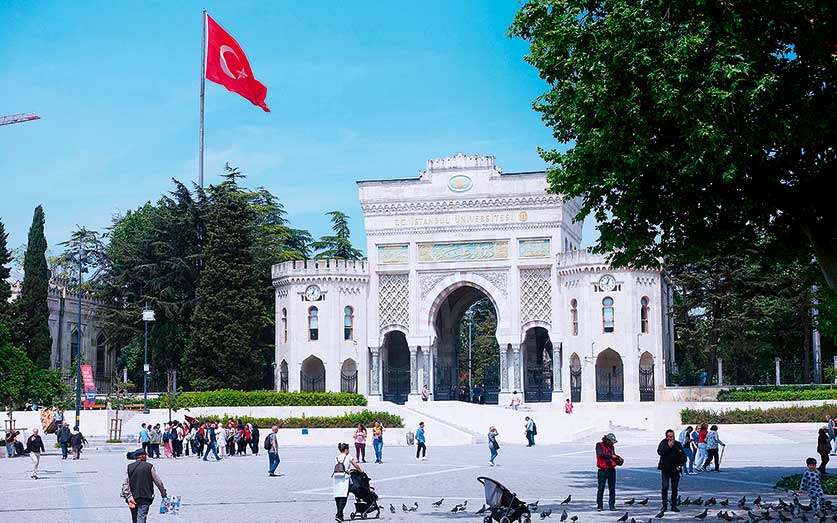When a petition for peace between Türkiye and the Kurdistan Workers’ Party, PKK, was submitted on 11 January 2016, hardly anyone had any idea what the more than a thousand academics who signed the petition would soon be put through. Universitetsläraren has met one of the signatories, Nur Betül Çelik, in Kadıköy on the Asian side of Istanbul.
At the time of the petition, she was a professor of political science and taught political philosophy at Ankara University. After the coup attempt in the summer of 2016, everything changed quickly.
“That’s when the sackings started. There was nothing we could do. We saw how one colleague after another was forced to leave. The university fell into silence. It was heartbreaking.”
Those who were dismissed were either accused of having colluded with the Gülen movement, which according to President Erdoğan was behind the coup attempt, or of having signed the peace petition.
On 7 February 2017, it was Çelik’s turn to lose her job. She and 73 other teachers were dismissed on the same day. After that, there were no peace academics left. She was not surprised; she had known the day would come. It was worse for her parents, she says.
“They took it very hard when I lost my job. They were so disappointed – not with me but with the system. Especially my dad. He never accepted it before he passed away. He was so proud of me when I got my professorship. I was the only woman in our entire family to become a professor. It was devastating for him when I was stripped of my position.”
The peace academics were accused of terrorism and links to the PKK, and they had their passports confiscated. Çelik and her colleagues joined forces to appeal against the decisions as soon as they could. But even after all these years, few have had their cases heard, and the courts’ verdicts have been inconsistent.
The fortunate ones were awarded compensation by their employers and were able to return to their former positions. But in Çelik’s view, the universities are no longer the same.
“The climate has changed. These events have caused enormous damage that will impact generations. Some teachers tell us that their students act as whistleblowers. If you say something wrong in a lesson, they go to the vice-chancellor’s office and complain. Then you can just as easily lose your job again.”
“It will take a very long time to save this country and the future,” she continues. “I don’t know if the current generation of academics have the energy or the will to fight. They have never known academic freedom, so how are they going to be able to restore it?”
Evrim Gülez, a representative of the education and science workers’ union, Eğitim-Sen, also tells us that the academic world has changed fundamentally since the coup attempt. Not only have all traces of academic freedom disappeared, but the regime has also ensured that no improvement can take place.
“Oppressive regimes are not content with eliminating freedom of thought and freedom of expression,” says Gülez. “They introduce an implicit obligation for people to say what the regime wants to hear. It is not possible to strengthen academic freedom if everyone who does not think and speak like them is labelled a terrorist.”
In the Turkish local elections at the end of March, the secular and opposition Republican People’s Party, CHP, caused a surprise when it succeeded in winning or retaining power in many districts, including Istanbul and Ankara. This was a major setback for Erdoğan and his Justice and Development Party, AKP. Even so, it is wise not to expect any changes in the near future, says Nur Betül Çelik.
“We don’t live in a democracy anymore, so democratic elections cannot get us out of this situation. I’m sure nothing will change. Rather, the regime will tighten its grip on the country and become even more authoritarian in order to retain power.”
















